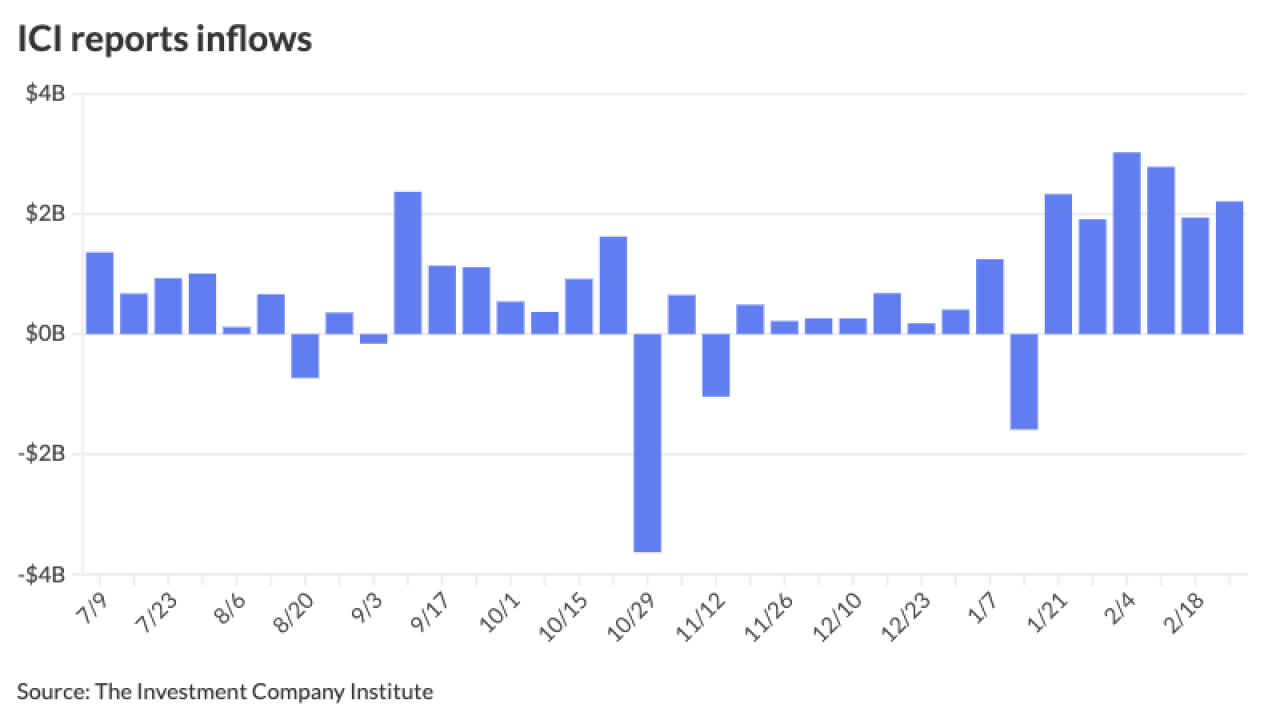After hearing tearful requests for leniency, U.S. District Court Judge Harold Baer in New York
Baer sentenced Steven Goldberg to four years on each count of conspiracy and wire fraud and fined him $90,000, while Peter Grimm and Dominick Carollo received three-year sentences for each count and $50,000 fines each.
The concurrent sentences were well below the government’s requests, which it based on guidelines. Prosecutors had sought a maximum of 14 to 17 years for Goldberg, 10 years for Carollo and 10 to 13 for Grimm.
“The sentences are relatively moderate, all things considered. Once you’ve been convicted in a federal count, you have to resign yourself to prison time,” said Anthony Sabino, a white collar criminal defense lawyer in Mineola, N.Y., and a St. John’s University law professor.
The three must report to prison on Nov. 26. Baer denied a motion for extended bail while an appeal to the U.S. Second Circuit is ongoing.
A jury in May convicted Goldberg of four counts, Grimm three and Carollo two after the government charged the former executives of General Electric Co. affiliates of manipulating muni bond contracts from 1999 to 2006, saying they defrauded issuers and the Internal Revenue Service of millions of dollars through a scheme that included providing so-called last looks at competitors’ bids, and collaborating with brokers through a system of back-end swap payments.
“The law requires sentencing that reflects the serious nature of the crime,” Baer said amid an overflow courtroom crowd of 100 people that consisted of family and friends of the defendants, as well as a copy-and-paste assemblage of lawyers.
Defense attorneys were optimistic about chances in an appeal. “Very, actually,” Carollo’s attorney, Walter Timpone of Morristown, N.J.’s McElroy, Deutsch, Mulvaney & Carpenter LLP said in an interview outside Room 23B of the Daniel Patrick Moynihan Courthouse.
Timpone said the government’s assertion that the fraud continues with each bond interest payment violates statute-of-limitations provisions.
“By the time the final interest payment is made in 2032, these guys will be dead,” said Timpone.
Baer denied a motion for acquittal by Goldberg’s attorney, John Siffert.
Goldberg, Grimm and Carollo spoke with trembling voices, struggling to finish their sentences. “I ask that you treat me with as much leniency as the law permits,” Goldberg said after Siffert made an impassioned plea on his behalf.
“Steve is financially ruined,” said Siffert, a name partner at Lankler Siffert & Wohl LLP in New York. “In addition, his colleagues know all about it. Media such as The Bond Buyer covered the entire case and he was subject to characterizations in a popular culture magazine [Rolling Stone].”
Timpone told Baer of how Carollo helped people escape from the World Trade Buildings during the Sept. 11 terrorist attacks.
Grimm briefly thanked his family.
But prosecutor Antonia Hill was unmoved. “Their fraud touched people of all walks of life throughout the United States,” she said, citing the reduced amounts governments received for such projects as road repair and low-income housing.
Wendy Wazsmer, who ran point for the government during the trial, was in the courtroom but did not speak.
According to the government, the three worked in unison with brokerage firms CDR Financial Products Inc., Investment Management Advisory Group Inc., or Image, and UBS Financial Services.
“They cheated every time they picked up the phone,” said Hill.
The government has 60 days to recommend how much restitution the three must pay, Baer having narrowed the window from 90 days, and restricted loss-estimating criteria.
“The key here in the sentence is three to four years on each count, but to run concurrently, not cumulative. That means every day served is a day for each of the counts,” said Sabino. “My surmise is that Judge Baer did not want to issue an extraordinary punishment, but recognized that financial crime, especially against the public at large, is certainly not victimless, and so it has to be punished. To do otherwise sends the wrong message.”





